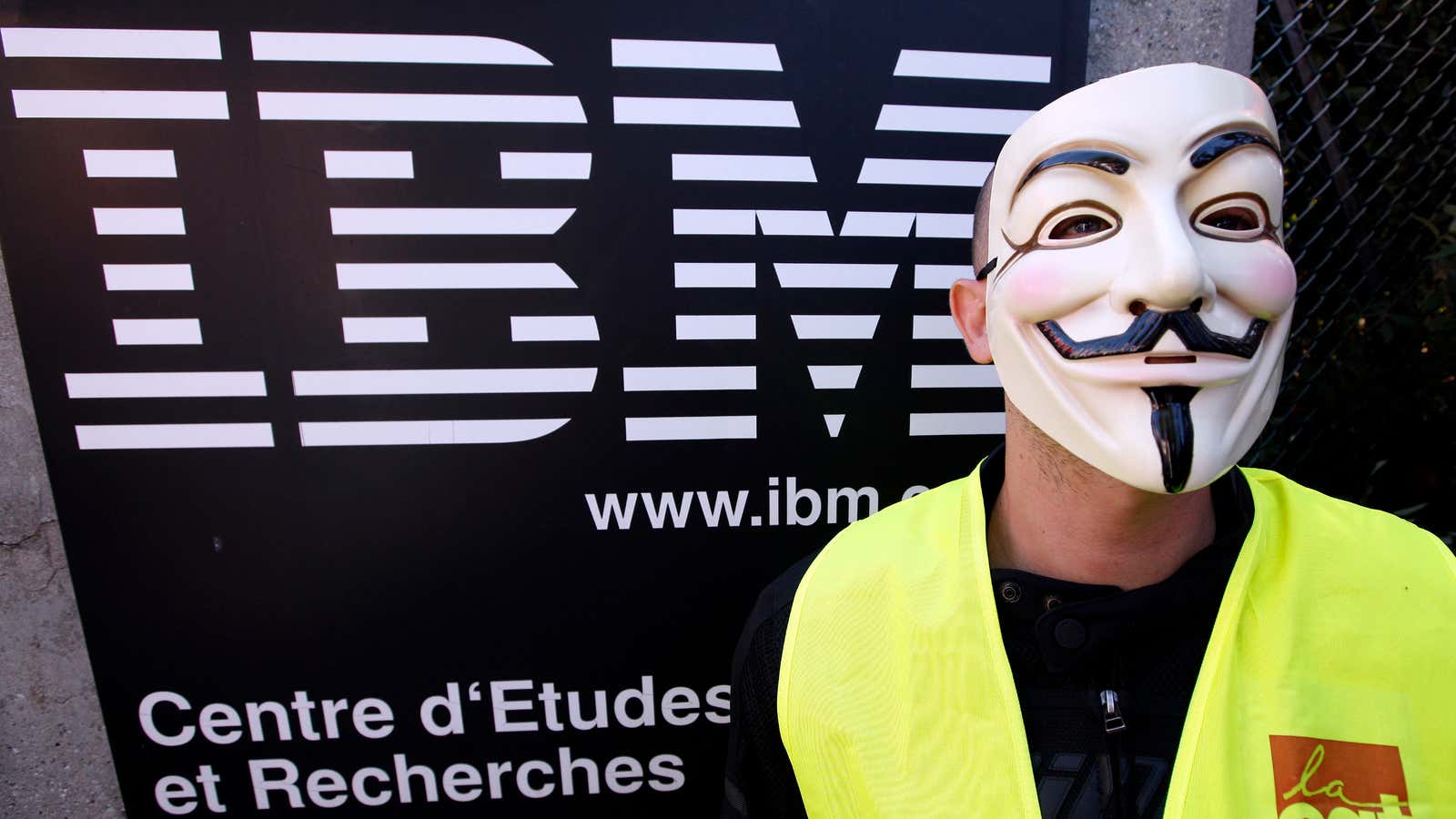Sort of.
The IT services company, under pressure to meet a high earnings forecast, has turned to the ever-malleable tax code for a boost to its earnings. That has some pretty surprising consequences, as Alex Barinka and Jesse Drucker report for Bloomberg: The company is driving more income through a subsidiary in the Netherlands. In 2008, the subsidiary, IBM International Group BV, reported just three employees, but at the end of 2012, it reported 205,000—almost half of the company’s worldwide staff of 430,000 workers.
Of course, we’d be hearing about a Dutch property bubble if those 205,000 people actually lived in the Netherlands. In fact, just 2% of them do. The rest are scattered around the world. For tax purposes, measures like these saved the company $6.5 billion from 2010 to 2012. In 2013, the company paid a 15.6% overall global tax rate, which it attributed to a “more favorable [than] expected geographic mix” of revenues (auditor jokes are funny). That will have added to the $44 billion of untaxed cash the company had accumulated overseas by the end of 2012, though we don’t yet know by how much.
Public-policy concerns aside, what worries analysts, of course, is a company on a cost-cutting mission running out of costs to cut. When it’s doing so much of that through tax avoidance, it inevitably raises questions about how well the primary business is going.
